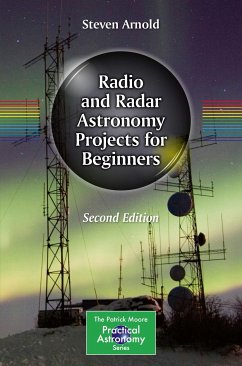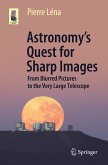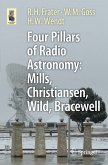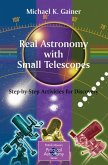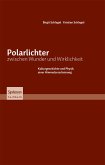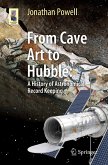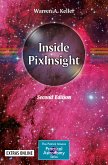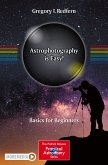Written by a mechanical engineer who has actually built and operated the tools described, the book contains a plethora of tested advice and practical resources. This revised edition of the original 2014 book Getting Started in Radio Astronomy provides a complete overview of the latest technology and research, including the newest models and equipment on the market as well as an entirely new section on radio astronomy with software-defined radios (SDRs).
Four brand-new beginner projects are included, including bouncing a radar signal off the Moon, detecting the aurora, and tuning into the downlink radio used by astronauts aboard the ISS. Requiring no previous knowledge, no scary mathematics, and no expensive equipment, the book will serve as a fun and digestible reference for any level of astronomers hoping to expand their skills into the radio spectrum.
Dieser Download kann aus rechtlichen Gründen nur mit Rechnungsadresse in A, B, BG, CY, CZ, D, DK, EW, E, FIN, F, GR, HR, H, IRL, I, LT, L, LR, M, NL, PL, P, R, S, SLO, SK ausgeliefert werden.

